The Search for God Page 2.1.5.4
Contagious Disease Or Inherent In Free Will?
As I began my search for God, the first bump, the first hiccup occurred as I began asking who is God? and immediately, the Judeo-Christian God was thrust into my conscious thought process. Why?

Even though I hated church, even though I did not consider myself a Christian, this was the concept I had. I imagine the same challenge awaits those who grow up in Muslim, Jewish, or atheistic cultures. A particular tendency, trend, inclination, or opinion, especially one that is preconceived or unreasoned.
Preconceived Or Unreasoned.
For me, the concept I had as I began my search was unreasoned, I just knew this information, but I had never walked through my questions. I never considered my emotional responses. So while I had this unreasoned concept of God, I also hated the church and what I thought religion had done through the centuries.
My Biases:
Where Did That Opinion Arise? Experience
Isn’t that the funny thing? We say that biases are unreasoned or preconceived, but they arose through some interaction. I can tell you exactly why I thought Christians were crazy. I can tell you about the duplicity that I saw and experienced.
Is All Bias Bad?
Well, that depends on perspective, who you ask, and the object to which you are biased? I prefer “good” vanilla over chocolate ice cream. Is that a bias? Would someone argue with me, try to convince me otherwise? Or would most people not care?
Is this bias or preference? How about if I say I hate the Christian church? What about Christians? What if I changed it to Muslims? Atheists? Each one will provoke a different emotional response and a different level of condemnation, argument, and vitriol depending on who I discuss this with.
Perspective
So I am searching for God, but I have these biases. What do I do? My solution was to assume the perspective of Truth, absolute Truth. I would consider all evidence. I would ask questions. I would analyze with logic and minimize emotion. This is not chocolate or vanilla; this is life and death.

“For I do not seek to understand in order that I may believe, but I believe in order to understand. For this also I believe-that unless I believe I shall not understand.”
Internal And External Influences
To really understand something, I am a fan of examining root words and synonyms and antonyms. The antonym of bias is impartiality. I would have to examine atheism impartially. I would have to impartially look at the evidence on both sides, weigh each argument and follow a decision tree.
It’s okay to have an internal bias; the concept of God and Truth are emotionally charged issues. We get heated. You may not be able to eliminate them. I wasn’t. I wanted to be right, thinking that my perspective and analysis are correct. It is hard to doubt all the time. At some point, each of us will have to make a decision.
What Next?
As always, analyze. Write down your biases. Revisit, why am I searching for God? Maybe visit the decision tree. Let me know in the comments or drop me a message letting me how to address issues better.
- What is Absolute Truth?
- Still unsure God exists? Revisit sections on atheism.
- Who is God?
- Who is Jesus?
- What is the crucial concept?
- Everyone comes to the search for God with bias. What are yours?
- Why is that significant?
- Take time and outline yours and ask if they are reasonable or true.
References And Links
How to Think Better and More Logically Removing Bias
Unit 1 Biases & Fallacies
What Is The Difference Between Logical Fallacies And Cognitive Biases?
14 Logical Fallacies in 14 Minutes
20 Most Common Logical Fallacies
- Youtube – Informal Fallacies, part 1
- Youtube – Informal Fallacies, part 2
- Online Etymology Dictionary – Bias
- Wikipedia – Judeo-Christian

Leave a Reply